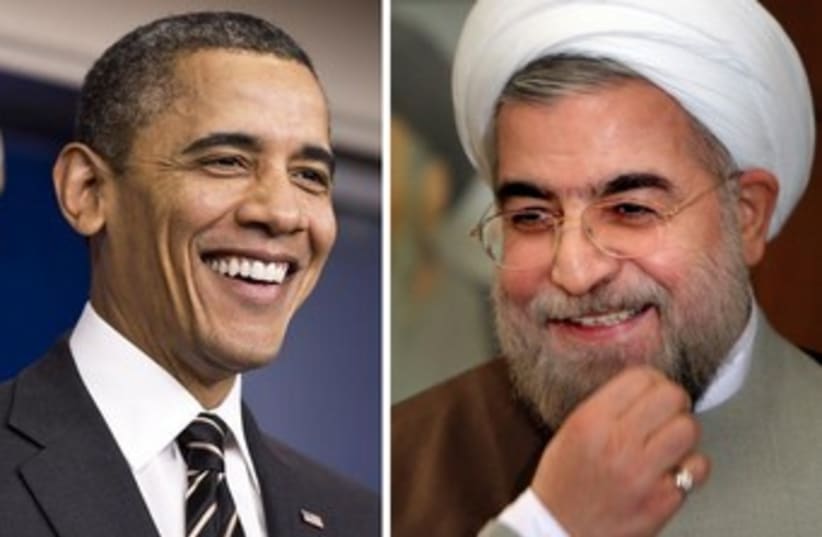DAVOS, Switzerland - Iranian President Hassan Rouhani said on Wednesday it was possible to turn more than three decades of enmity with the United States into friendship if both sides made an effort.He was speaking in a Swiss television interview after arriving at the World Economic Forum in Davos where he will court the global business community and meet a series of oil company executives on Thursday.Asked whether there could one day be a US embassy again in Tehran instead of the Swiss embassy representing US interests in Iran, the president told public RTS television: "No animosity lasts eternally, no friendship either lasts eternally. So we have to transform animosities into friendship."
An interim deal with six major powers including the United States to restrict Iran's disputed nuclear program in exchange for a partial easing of economic sanctions entered into force this week.Rouhani traveled to Davos to persuade foreign investors to return to his country, which has some of the world's biggest oil and gas resources and a market of 76 million people.In the interview, in which he spoke in Farsi voiced over into French, he said relations with Washington had been difficult in the past but with hard work and efforts by both sides, problems could be overcome."This effort is necessary to create confidence on both sides. Iran is in fact stretching out its hand in peace and friendship to all countries of the world and wants friendly, good relations with all countries in the world," the president said.SKEPTICAL ON SYRIAHe made no mention of the more difficult negotiations that lie ahead to conclude a permanent agreement on Iran's nuclear program, which the West believes is aimed at developing weapons.However, he poured cold water on a UN-sponsored peace conference on the civil war in Syria, which opened in Montreux, Switzerland on Wednesday in the absence of Iran, a key ally of Damascus, which was excluded after refusing to endorse the goal of a transition from President Bashar Assad's rule."Reaching a conclusion will be very difficult but my wish is that if all efforts go in the direction of the wishes of the Syrian people, that is the direction that should prevail.""As to whether this conference can achieve its objectives, I have a lot of doubt," he added. Rouhani accused Saudi Arabia and Qatar of backing "terrorists" in Syria in an effort to extend their own influence in the Middle East.Meanwhile, US Secretary of State John Kerry on Wednesday left the door open for Iran to participate in Syrian peace talks, saying Tehran could make a difference in ending the conflict."Iran certainly does have an ability to be helpful and make a difference," Kerry told a news conference at the end of an international conference seeking to end Syria's civil war."We hope they will decide to be constructive and make a decision to operate in a way going forward that can allow them to do so," Kerry said, adding: "There are plenty of ways that that door can be opened in the next weeks or months, and my hope is they will want to join in a constructive solution."Rouhani says Iran-US animosity can flip to friendship
Iranian president says possible to turn more than 3 decades of enmity with US into friendship if both sides make effort.
